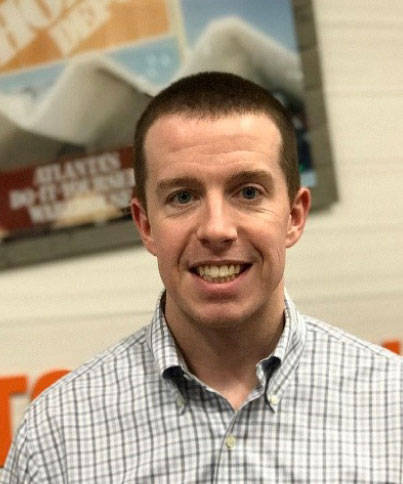Talking Data Science with Home Depot's Michael Carpenter
Home Depot's director of finance and decision analytics shatters some myths about artificial intelligence and provides a unique perspective on how to stand out as a data science job candidate.
 Michael Carpenter is the director of finance and decision analytics for operations at The Home Depot. In his role he leverages artificial intelligence (AI) and data science to support backend store operations across the company's 2,300 stores in North America, be it receiving and stocking products on the shelf or in-store employees and customer care.
Michael Carpenter is the director of finance and decision analytics for operations at The Home Depot. In his role he leverages artificial intelligence (AI) and data science to support backend store operations across the company's 2,300 stores in North America, be it receiving and stocking products on the shelf or in-store employees and customer care.
Home Depot operates with a simple premise: put the customer and front-line associates first. In recent years, the company has incorporated AI, machine learning, and data science to do just that. Carpenter has heard all types of claims about the future of AI, and he sat down to share four of his own for students in Northwestern Engineering's Master of Science in Artificial Intelligence (MSAI) program.
AI and machine learning is not about human vs. machine, it's about machines augmenting the human processes
"Robotic process automation or AI bots that can write their own code can invoke some fear and skepticism in people. There are concerns that AI and data science are going to supplant your job at some point, but what I'm seeing is they accelerate our capabilities. I don't think our team has a fear that this technology will replace a role. Instead, everyone is excited by the speed they're able to get work done."
You don't need to apply AI and data science to solve every problem
"A basic descriptive analytic can unearth a tremendous amount of value. If someone was given the task to understand the drivers of a poor customer experience in our stores, they might decide to build a machine learning model that helps determine a bad experience and the cause of it. But in that situation, you need to take a step back. With that direction alone, you don't even have an understanding of how many poor customer experiences there are.
"We have surveys that customers fill out. A first step could be just to look at those surveys and see how customers are responding. With that information, you might find a pool of negative experiences. We have a text analytic capability — which is a form of AI and data science — that already categorizes comments into a structured manner based on configurations that people have already built. You can look at that data and see and understand what people are saying. A response to a survey can get you very immediate, action-oriented insights as opposed to building out a sophisticated model just because it's cool."
AI and machine learning models can't run themselves all the time
"There is a level of care that's needed with these models, and COVID-19 was a great example of that. Replenishment models had to change, and labor forecasting had to change. You have to have a constant pulse on what the models are saying, what's accurate, and when you have to jump in and adjust the model."
When it comes to data science, there's a way to become a superhero
"The biggest message I preach is I want to hire people who have a true passion for the business, and I underline, bold, and capitalize the word 'business.' I've met with job candidates in the data science space who are extremely energized about building models and solving some of the hardest, most complex problems put in front of them. When I ask why they want to work at Home Depot, though, or what has them energized about working at Home Depot, they say that they're really agnostic to the industry they work in. They just want to be pointed to the hardest problems.
"If you want to be a superhero in the world of data science, the way to do that is to take the passion for problem solving and pair it with an equal amount of passion to understand the business that you are operating in. If you're wanting to work at Home Depot, visit a store, talk to associates, talk to customers, look around, touch and feel the products, and look at the flow of the parking lot. As you get to know a business, you start to realize areas where you can deploy your craft that will have a positive and meaningful impact on the organization, as well as for you and your career."

